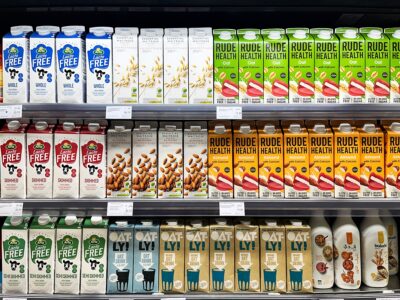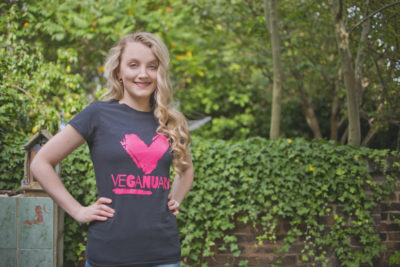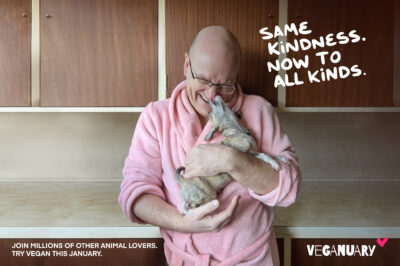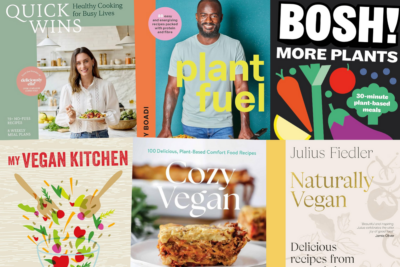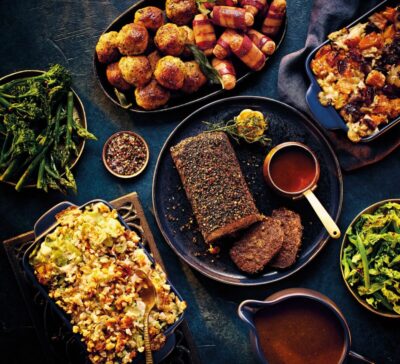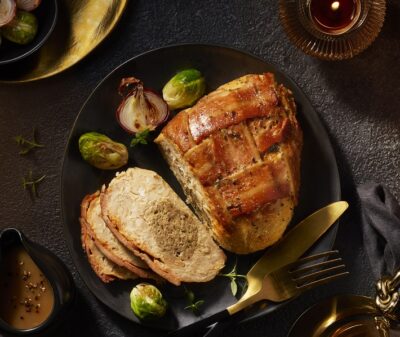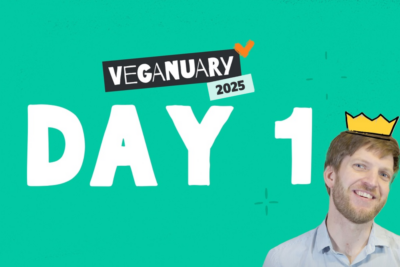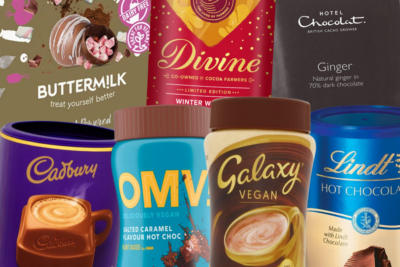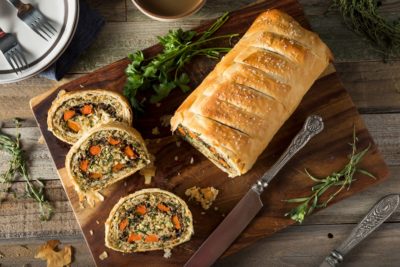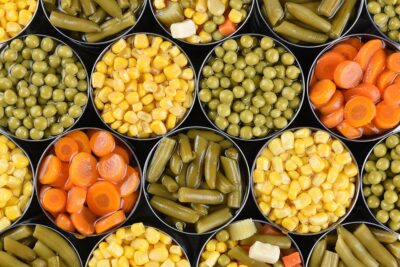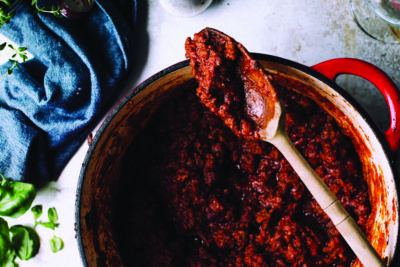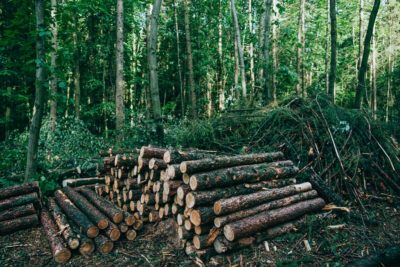The future of fresh water is under threat, so why are we wasting so much to produce animal products?
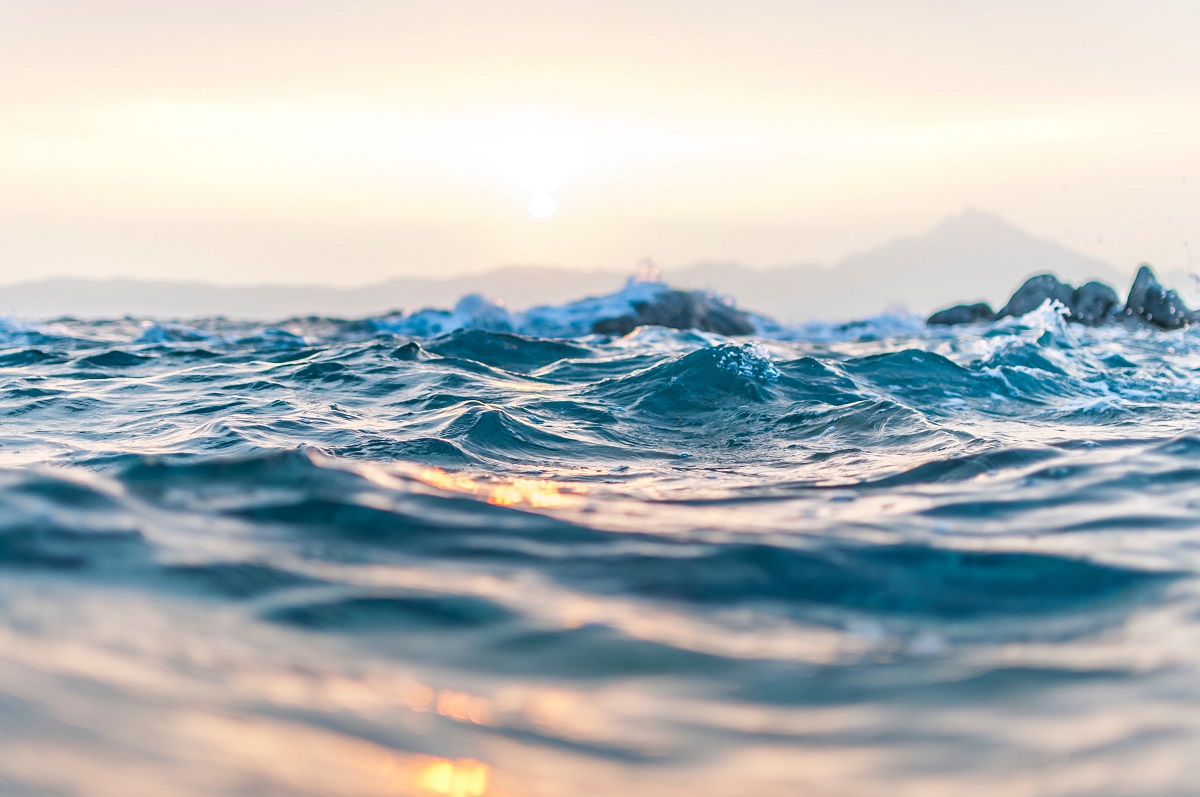
Although the surface of our planet is predominantly water, only three per cent of it is fresh, and two-thirds of that is held in frozen glaciers or is otherwise unavailable.[1] Already, two billion people live in countries that experience high water stress[2], and as the climate changes, that figure is set to rise.[3] We mustn’t waste this precious, life-sustaining resource.
And yet that is exactly what we do every time we consume animal products. Globally, agriculture uses 70 per cent of all available freshwater[4] and the thirstiest type is animal agriculture.
Why does animal agriculture use so much water?
A 2020 analysis of water scarcity published in Nature found that cows were one of the major drivers of water shortages in the United States. Across the country, crops fed to cows (both raised for meat and dairy) accounts for 23 percent of all water consumption.[5]
A single cow being used for her milk, for example, can drink 155 litres a day, while one typical factory farm chicken shed may use 14,000 litres each day. [6]
Then add in the irrigation of crops (far more are needed to feed animals than if people ate them directly), the cleaning of farm sheds, and the water-intensive slaughter process, and it’s clear to see why vast quantities of water are needed to produce meat, milk and eggs.
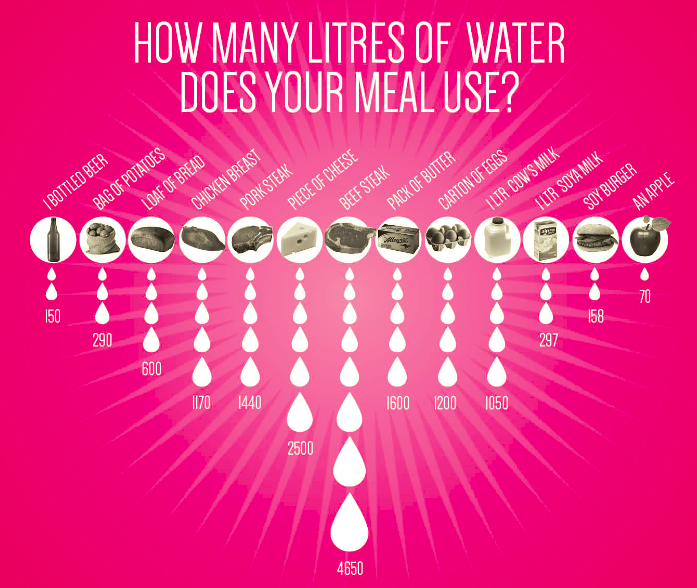
Choosing vegan to protect water supplies
All this means it takes a staggering 9,000 litres of water to produce just one pound of beef. For comparison, it takes 60 litres of water to produce one pound of potatoes and 229 litres to produce one pound of rice.[7] And if we were to look at a meat burger versus a Beyond burger, which looks, cooks and tastes like meat, we’d see the meat-free version uses 99 per cent less water. [8]
Unsurprisingly, the United Nations describes animal farming as having ‘an enormous impact on water use’.[9]
The best way to save water is to eat vegan.
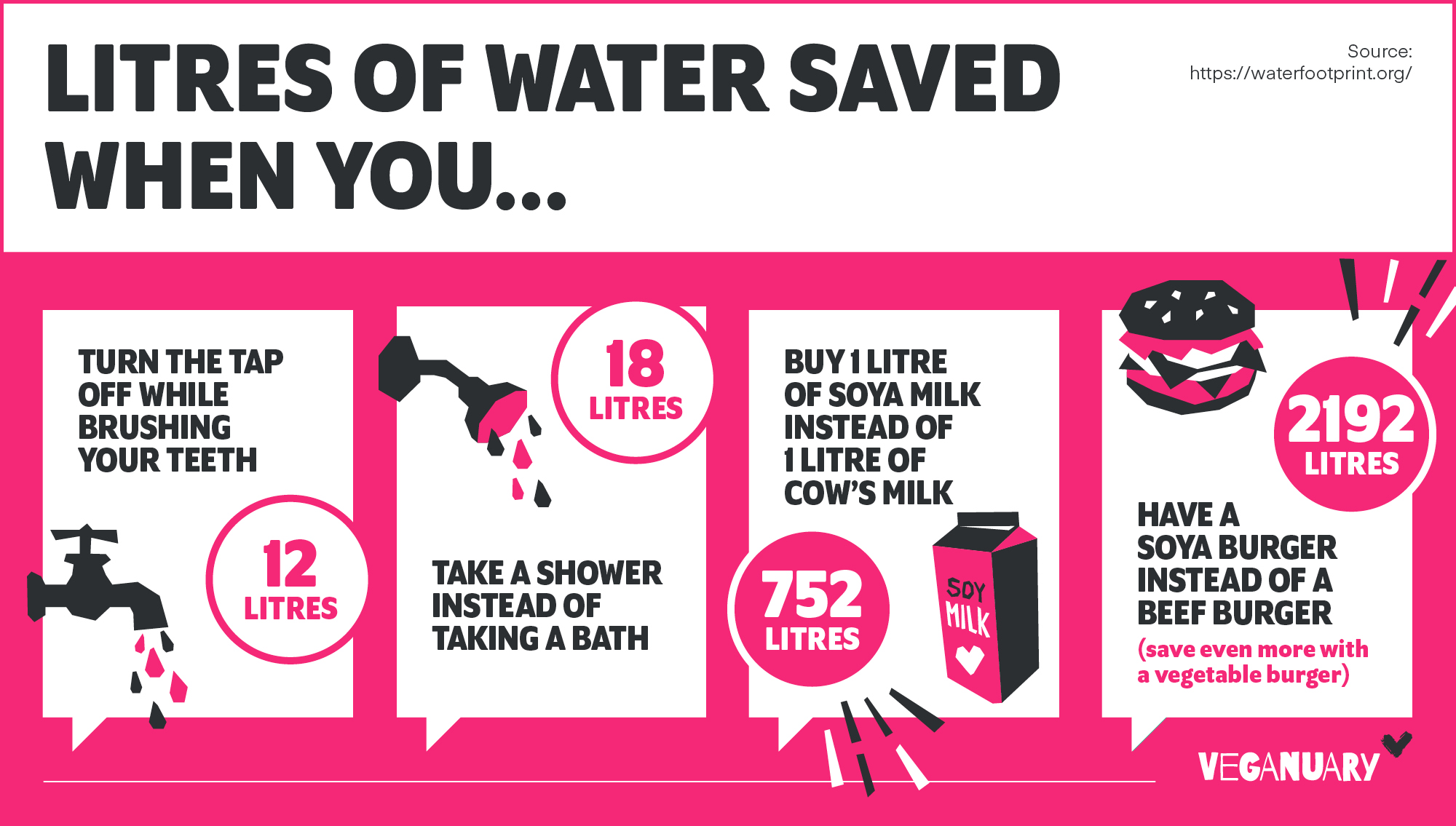
PAGE UPDATED MAY 2021
References
1 ‘Water scarcity: overview’, World Wildlife Fund. worldwildlife.org [Accessed 1 December 2018]
2 ‘Water scarcity’, UN-Water. unwater.org [Accessed 21 May 2020]
3 ‘The looming threat of water scarcity’, Worldwatch Institute, 19 Mar 2013. http://www.worldwatch.org/looming-threat-water-scarcity [Accessed 1 December 2018]
4 John Vidal, ’10 ways vegetarianism can help save the planet’, The Guardian, 18 Jul 2010 theguardian.com [Accessed 1 December 2018]
5 Richter, B.D., Bartak, D., Caldwell, P. et al. Water scarcity and fish imperilment driven by beef production. Nat Sustain 3, 319–328 (2020). https://doi.org/10.1038/s41893-020-0483-z
6 ‘How much water does farming use?’, Envirotech, 4 May 2021
7 Ibid
8 ’About’, BeyondMeat.com [Accessed 5 May 2021]
9 ‘Livestock’s Long Shadow’, Food and Agriculture Organization of the United Nations, 2006. [Accessed 1 December 2018]


